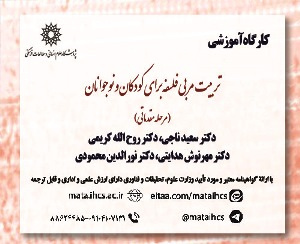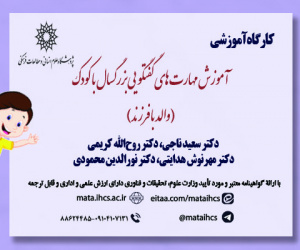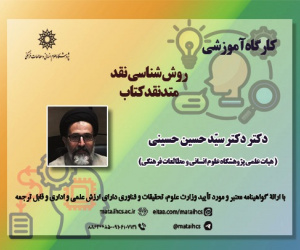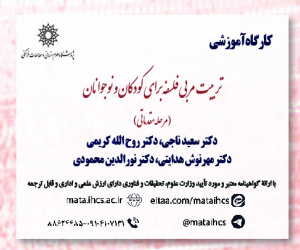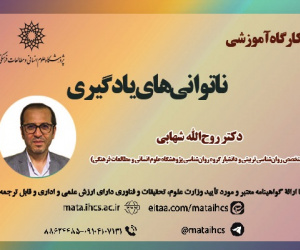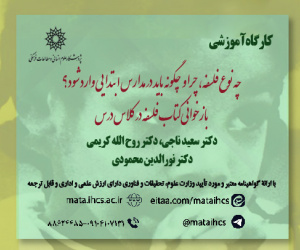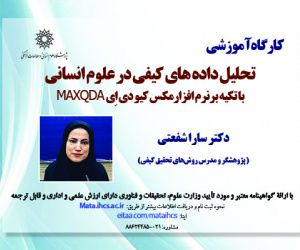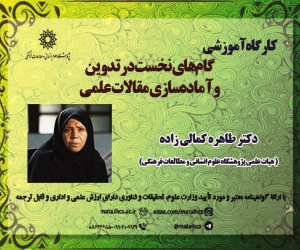فرصت یا تهدید موضع گیری های اصحاب هنر(سلبریتی ها) در شبکه های مجازی نسبت به امورات مملکتی با تاکید بر آموزه های جرم شناسی انتقادی
آرشیو
چکیده
در دنیای امروز، رسانه ها و به ویژه شبکه های اجتماعی نقشی کلیدی در شکل دهی به افکار عمومی ایفا می کنند. سلبریتی ها، به عنوان افرادی که به واسطه شهرت خود در کانون توجه قرار دارند، با موضع گیری های خود در فضای مجازی می توانند بر تحولات اجتماعی و سیاسی تأثیرگذار باشند. این امر گاه موجب بسیج اجتماعی در جهت حمایت از مسائل عمومی و آگاهی بخشی شده و گاه منجر به بروز آنومی اجتماعی و رفتارهای اعتراضی سازمان یافته می شود. پژوهش حاضر با رویکردی توصیفی تحلیلی و بهره گیری از روش اسنادی و کتابخانه ای، به بررسی این پرسش می پردازد که مواضع سلبریتی ها در فضای مجازی از منظر آموزه های جرم شناسی انتقادی تا چه اندازه می تواند به عنوان یک فرصت یا تهدید برای حاکمیت سیاسی تلقی شود. یافته های پژوهش نشان می دهد که تأثیرگذاری این افراد می تواند دوگانه باشد؛ در مواردی که این تأثیرگذاری مبتنی بر تحلیل سازنده و آگاهی بخشی عمومی باشد. فرصتی برای بهبود شفافیت و تقویت گفت وگوهای اجتماعی خواهد بود. در مقابل، اگر این موضع گیری ها بر اغراض شخصی و سیاسی غیرمنصفانه استوار باشد، می تواند تهدیدی برای ثبات اجتماعی محسوب شود. نتایج این پژوهش نشان می دهد که اتخاذ رویکرد تعاملی از سوی حاکمیت، افزایش آزادی بیان و ترویج فرهنگ نقدپذیری می تواند به مدیریت و تعدیل تأثیرات مثبت و منفی سلبریتی ها کمک کند و از پیامدهای مخرب احتمالی جلوگیری نماید.Opportunity or threat the positions of the artists (celebrities) on the Internet towards the affairs of the country with emphasis on the teachings of Critical Criminology
Background/Introduction: In recent decades, the emergence and growing power of social media in shaping public opinion have led to the phenomenon known as “celebrity culture.” This phenomenon has developed through the active presence of famous individuals in cyberspace, who often comment on various social and political issues. These individuals, despite their lack of expertise or direct responsibility, act as social references due to their public fame, posing significant challenges to modern societies. Celebrities, leveraging their communicative power, sometimes contribute to public awareness and constructive criticism, while at other times, they provoke social anomie and organize anarchic behaviors through irresponsible interventions. Therefore, studying this phenomenon and analyzing its effects on social and political systems is of particular importance.Research Objective: This study aims to examine the influence of celebrities on public mobilization and social issues in cyberspace from the perspective of critical criminology. The central question of the research is whether the influence of celebrities in cyberspace is a threat to social and political systems or an opportunity for raising awareness and promoting public management. Additionally, the study seeks to identify key factors shaping celebrity behavior and their interactions with society.Methodology: This research adopts a descriptive-analytical approach, utilizing documentary and library sources. Data collection focuses on theories of critical criminology and analyzes the behaviors of celebrities in social and political contexts. This methodology enables a comprehensive understanding of celebrity behaviors and their implications for social and political systems.Key Findings: The study reveals that the influence of celebrities on public mobilization is dual in nature. Depending on their intentions and behaviors, it can be considered either an opportunity or a threat. Findings indicate that when celebrities use their fame for irresponsible comments or attention-seeking behaviors, they can create social crises and exacerbate disorder within society. Such actions are often a result of their lack of expertise in critical social and political issues. On the other hand, the positive role of celebrities in raising public awareness and fostering constructive criticism cannot be overlooked. This positive impact can manifest in strengthening social values, promoting public freedoms, and combating injustices. Furthermore, expanding freedom of expression, fostering a culture of political critique, and enhancing collaboration between governments and professional groups can contribute to better management of this phenomenon.Conclusion: Celebrities have become one of the most influential social groups in the era of social media, playing a crucial role in shaping public opinion and driving social mobilization. This study underscores the necessity of managing their influence through intelligent policymaking, constructive engagement, and the protection of freedom of expression. Specifically, governing systems can leverage the potential of celebrities to advance social goals, provided that irresponsible and harmful behaviors are effectively controlled and guided using democratic and practical methods. Key strategies in this regard include promoting a culture of critique and public education, which can reduce social tensions and maximize the positive potential of this group. Additionally, avoiding repressive measures and focusing on constructive interaction can assist political systems in managing the challenges arising from celebrity activities. Ultimately, this study concludes that while the influence of celebrities on society and politics can pose certain threats, it also offers opportunities for social and political transformation.Constructive interaction, the expansion of freedom of expression, and utilizing celebrities as tools for public awareness represent fundamental steps toward better management of this phenomenon and the realization of a more democratic society.



